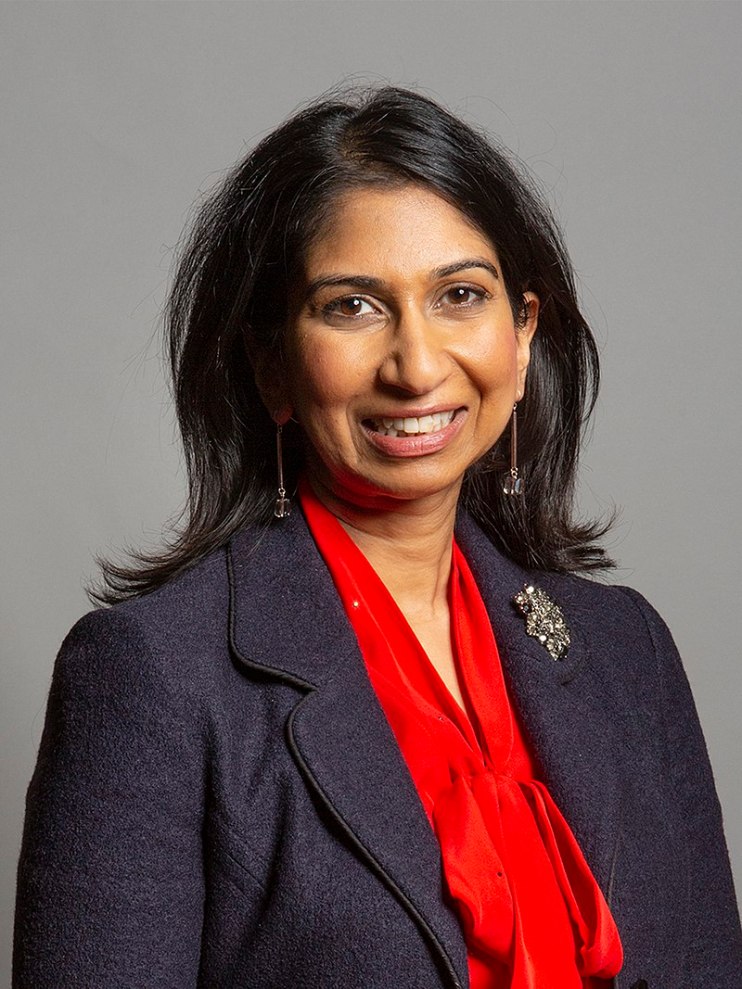Meet Liz Truss top team: Who is the UK’s new Home Secretary, Brexit barrister Suella Braverman?

Following yesterday’s Cabinet reshuffle, City A.M. introduces you to some of Liz Truss’s key government ministers. Who are they? What has their journey been so far? Also check out the new Chancellor, Kwasi Kwarteng and and the UK’s new Foreign Secretary, James Cleverly as well as the new Business Secretary, Jacob Rees-Mogg.
A barrister who said the courts should stay out of politics and criticised the civil service for being too “woke” has risen through the Tory ranks to her most senior government appointment to date.
Suella Braverman, who became the first person to launch a bid to become the next prime minister before being knocked out of the race and deciding to back Liz Truss, has held on to her place in Cabinet and gained a promotion to Home Secretary, taking over from Priti Patel.
The 42-year-old was made the Government’s most senior lawyer in February 2020, taking the role of Attorney General amid Boris Johnson’s growing battle with the judiciary.
During this time she became the first Cabinet-level minister to take maternity leave after special legislation had to be passed by Parliament to allow her to take time away from her ministerial duties.
Cambridge, Paris and New York
The MP for Fareham in Hampshire since 2015 studied law at the University of Cambridge, before gaining a masters at the Sorbonne in Paris.
She also qualified as an attorney in New York and was called to the Bar in Britain in 2005, specialising in public law and judicial review.
As a barrister she has defended the Home Office in immigration cases, the Parole Board in challenges from prisoners, and the Ministry of Defence over injuries sustained in battle.
In a comment piece for the Conservative Home website two years ago, the Brexit supporter said Parliament must “retrace power ceded to the courts”.
The article followed comments she made the previous year on Newsnight, where she said she hoped legal reforms would restore the principle of “judicial deference’”, adding: “Which means that our courts and our judges generally stay out of politics.”
Brexit rows
The seeds of the government’s battle with the courts were sown during the Brexit rows, when campaigner Gina Miller successfully challenged the Government over then-prime minister Theresa May’s right to trigger Article 50 without a vote in Parliament.
The Supreme Court ruling in 2019 that Mr Johnson’s decision to suspend Parliament was unlawful fuelled Tory suspicions about judicial activism.
Since then the Government has come under fire for seeking to blame “left-wing activist” lawyers for challenging its decisions through the courts, particularly those involving immigration and asylum cases – something Patel reiterated in her resignation letter to Boris Johnson on Monday night.
‘Woke’
Earlier this year, Braverman came under fire for saying she was considering whether to refer the case of four people cleared of tearing down a statue of slave trader Edward Colston to the Court of Appeal.
She later defended the comments saying it was “entirely” within her remit to do so, after the acquittal prompted a debate about the criminal justice system because the defendants, dubbed the Colston Four, opted to stand trial in front of a jury and did not deny involvement in the incident.
“Instead they claimed the presence of the statue was a hate crime and it was therefore not an offence to remove the statue.
Braverman is also said to have criticised the civil service as being too “woke”, reportedly lashing out earlier this year at the decision by the Government Legal Department to go on “divisive” diversity training at the taxpayers’ expense.
Allan Hogarth, Amnesty International UK’s head of policy and government affairs, urged Braverman to “chart a completely different course to her predecessor – one focused on human rights, justice, hope and compassion”.
He added: “It’s time to abandon the cruelty and dysfunction of the current asylum policy, to ensure people are at liberty to protest peacefully, and to institute major reforms in policing” and repeated calls to scrap plans to send migrants to Rwanda.”